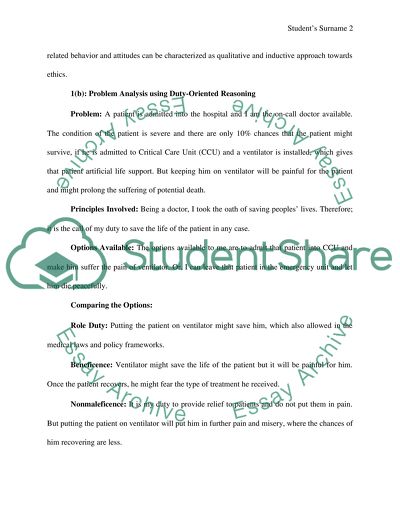Retrieved from https://studentshare.org/religion-and-theology/1488700-types-of-reasoning-problem-analysis-using-duty-oriented-reasoning
https://studentshare.org/religion-and-theology/1488700-types-of-reasoning-problem-analysis-using-duty-oriented-reasoning.


